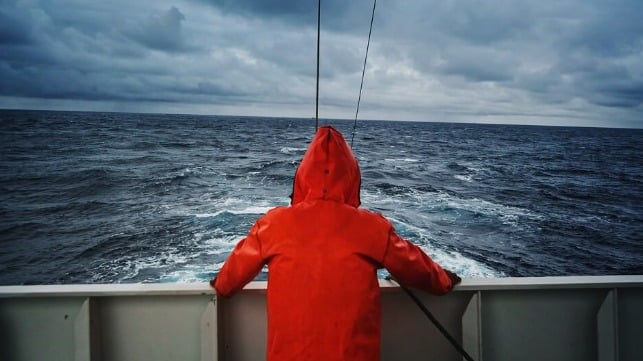Op-Ed: Shipping Must Evolve to Support Neurodivergent Seafarers

Whilst the maritime industry continues to adapt to change, one aspect of workforce inclusion is still widely overlooked - neurodiversity.
With latest statistics suggesting nearly 20 percent of the global population is neurodivergent, this is not a segment of our society we can simply ignore. The term ‘neurodiversity’ refers to the natural differences in how people experience, process, and respond to the world around them. It includes a range of cognitive profiles such as autism, ADHD, dyslexia, and dyspraxia.
Autism, for example, is a developmental condition that affects how individuals communicate, interact, and process sensory information. Common traits may include differences in social communication, a preference for routine, sensory sensitivities, and intense focus on specific interests. While these can present challenges in some environments, they also contribute valuable strengths such as attention to detail, reliability, and creative problem-solving.
To date, the prevalence among seafarers is unknown. Seafaring is already a demanding profession, with long contracts, unpredictable conditions, isolation from family, and confined living spaces testing the resilience of even the most seasoned professionals. For neurodivergent seafarers, these pressures can be more difficult to manage and often involve additional, less visible challenges.
Simultaneously, the idiosyncratic nature of seafaring - with its need for attention to detail, particular social structure, routine onboard, and need for intense focus and problem-solving skills - may appeal to neurodivergent individuals.
Despite growing awareness of neurodiversity in other industries, maritime is still in the early stages of recognizing exactly how neurodivergence can affect life at sea. Many operational structures, such as overstimulating environments and training practices, are designed around neurotypical norms. In some cases, cultural attitudes and stigma towards neurodivergence can make matters worse. Misunderstandings or a lack of awareness may lead to unfair assumptions or behavior and, in some cases, even discourage individuals from being open about their needs.
This is not just an issue of wellbeing. It also influences safety, retention and long-term career development. Neurodivergent individuals often bring highly valuable skills to maritime roles, such as thinking, problem-solving, pattern recognition, and deep focus. These strengths align with the increasing complexity of maritime operations, particularly in safety and technical environments. However, when understanding and support are lacking, this potential is often overlooked.
In April an industry-first initiative by NeurodiversAtSea, the Seafarers Hospital Society and The Seafarers’ Charity was launched. The program is designed to provide tailored support to neurodivergent seafarers and to better understand how maritime environments can evolve to be more inclusive. This is a meaningful step forward, and a strong signal that change is both possible and necessary.
That said, progress cannot rest on a few initiatives alone. Industry-wide commitment is essential. There is still a significant gap in data. Without targeted research into the lived experiences of neurodivergent seafarers, it is difficult to develop meaningful support. Strategies must be grounded in evidence rather than assumptions.
It is equally important to build disclosure-safe environments. Many seafarers may avoid disclosing neurodivergence due to fear of judgment, limited understanding or the risk of being at a professional disadvantage. Creating a culture of safety and acceptance is essential. People must feel as though they are able to express their needs without any concern for negative consequences or reactions.
Training must also improve. Neurodiversity awareness should be included in programs at every level, from cadets to senior leadership. This involves understanding communication differences and adapting daily practices to support all aspects of neurodiversity.
Too often, we hear from people who speak confidently about issues they have never personally faced. While intentions may be sincere, policies or initiatives shaped without direct input from those affected often overlook the reality of daily experience.
As younger generations enter the workforce, this conversation becomes even more urgent. Many young professionals are more likely to identify as neurodivergent or expect employers to support cognitive diversity. Inclusion is no longer optional. It is a key factor in attracting and retaining future talent.
At OneCare Group, we support maritime organizations in making this a reality. Through our Neurodiversity and ADHD Awareness Initiative, we provide the resources and guidance necessary to help ensure that neurodivergent seafarers are not simply accommodated but supported to thrive in every role, both at sea and ashore.

that matters most
Get the latest maritime news delivered to your inbox daily.
By shifting from policy to practice, and from awareness to advocacy, we can drive a more inclusive maritime culture, one where diversity fuels safety, innovation, and human performance.
Marinos Kokkinis is Managing Director at OneCare Group.
The opinions expressed herein are the author's and not necessarily those of The Maritime Executive.
